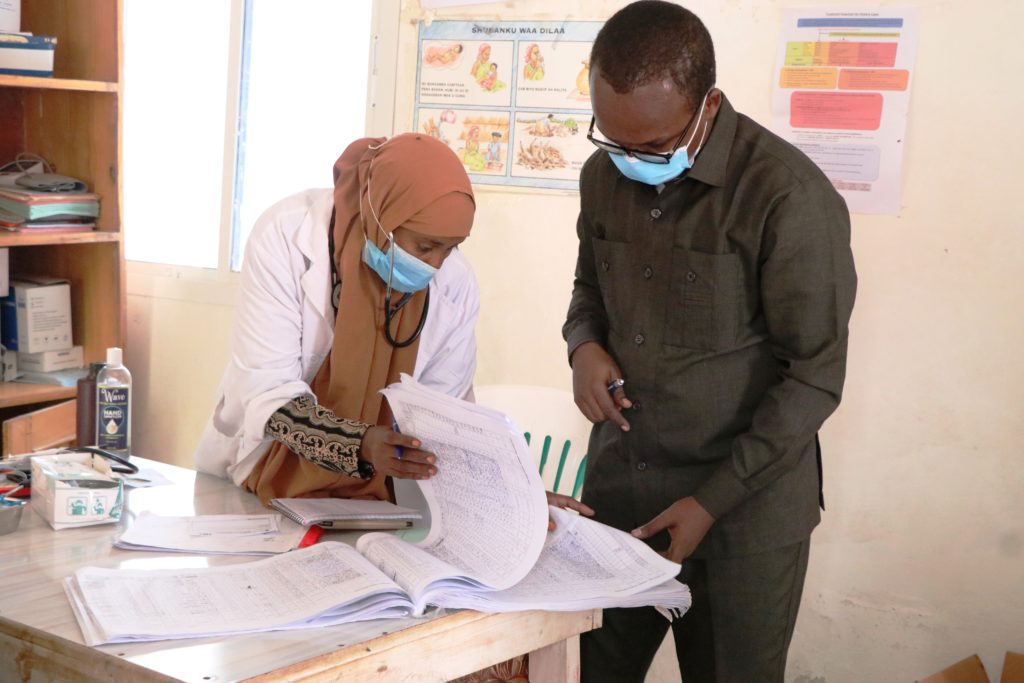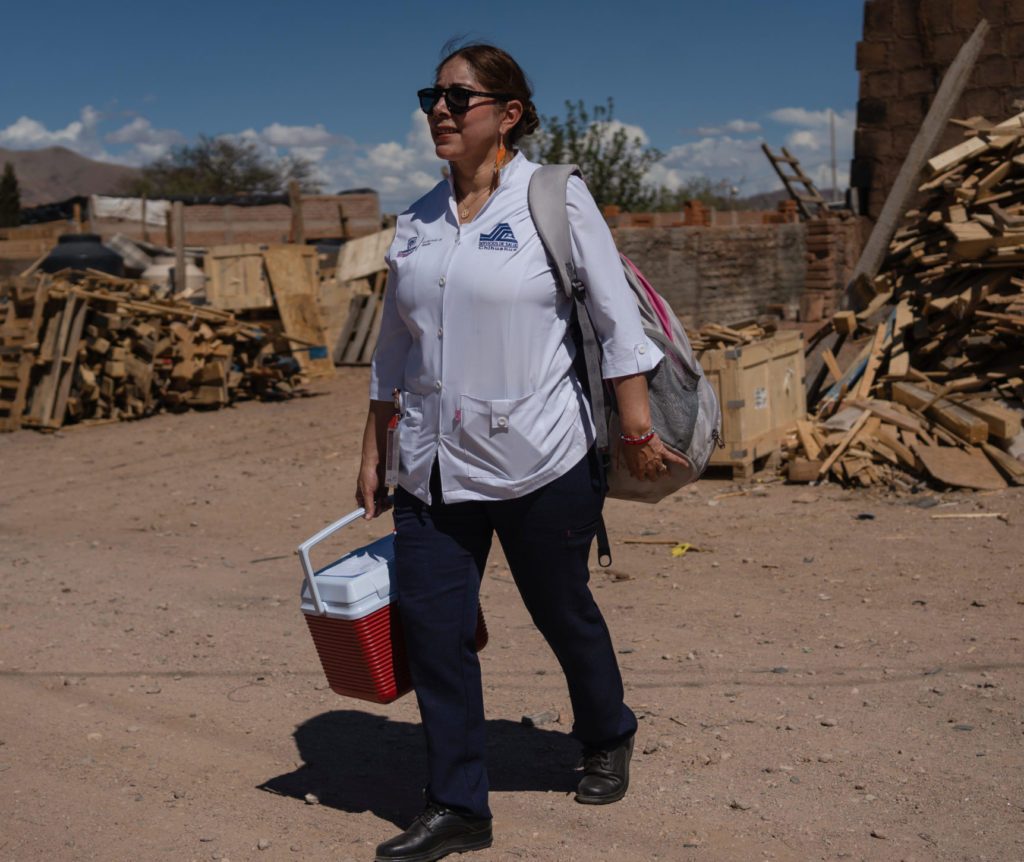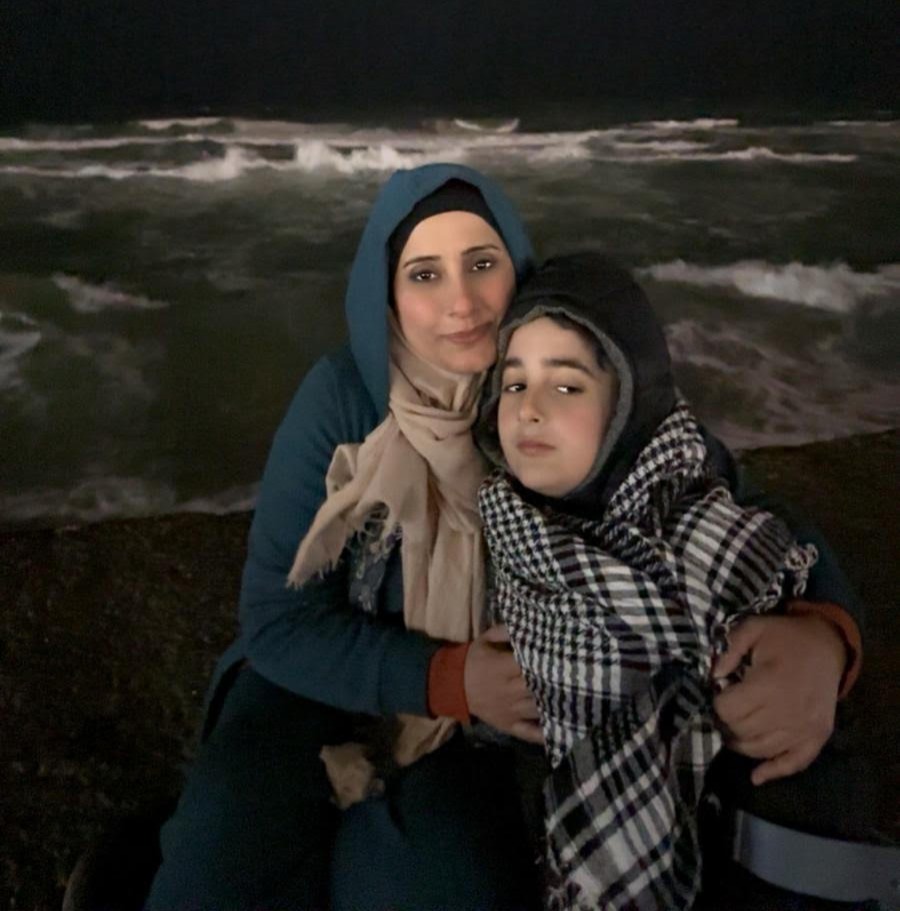WHO Helps to Restore Health Services in Flood-Hit Libya
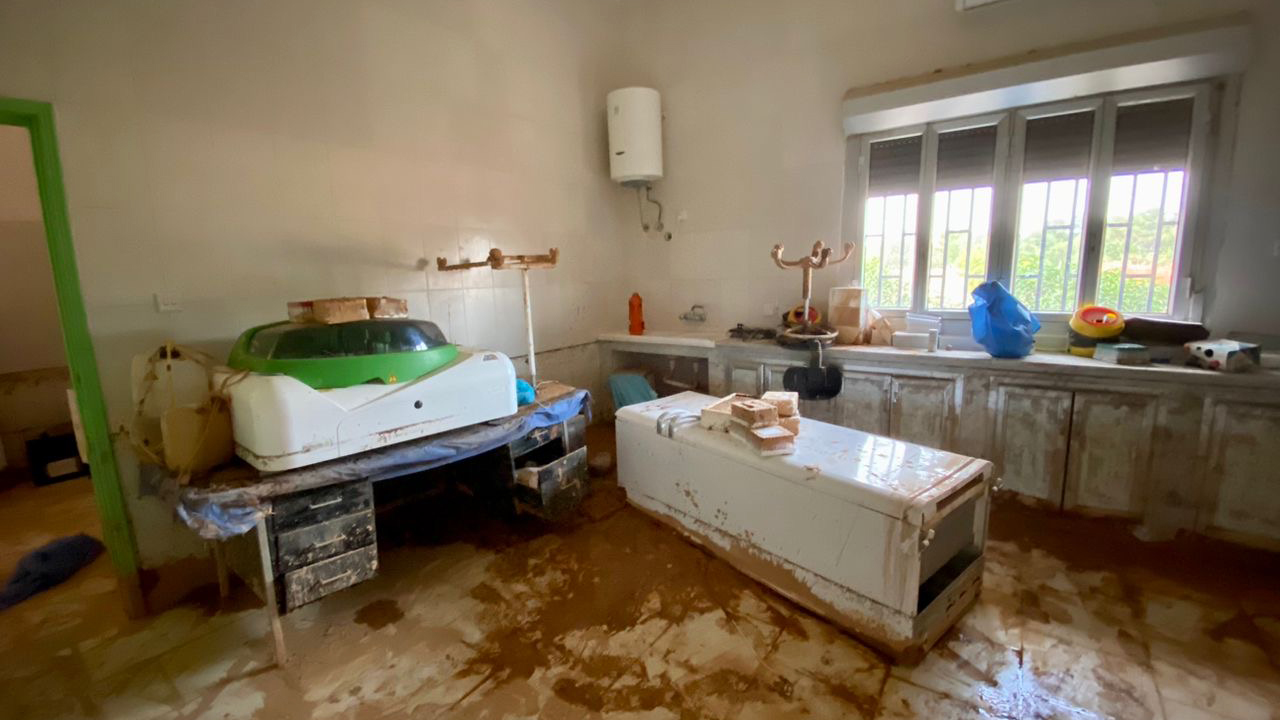
An inside view of one of the many hospitals severely impacted by the floods. Credit: WHO
The World Health Organization (WHO) is supporting urgent efforts to restore health services in the area affected by the catastrophic floods in Libya.
Described as a “disaster of epic proportions,” by Dr Ahmed Zouiten, the WHO Representative in Libya, more than 4,000 people are confirmed dead, around a quarter of the city has been washed away and thousands more are missing.
The flooding in the eastern city of Derna followed the collapse of two dams in the wake of Storm Daniel. The WHO Foundation has launched a fundraising campaign to support WHO’s humanitarian efforts.
How is WHO responding?
At the time of writing, WHO:
-
- Has delivered supplies sufficient for 250,000 people including essential medicines, and medical equipment to restore services in hospitals and health clinics.
- Is working closely with health authorities in Libya to address the health needs of survivors and other people affected by the flooding.
- Is preparing to reinforce disease surveillance and infectious disease control.
- Will coordinate the presence of emergency medical teams in hard-to-reach.
Responding to the health needs of the people affected in emergencies is vital. WHO acts as the UN’s lead health agency in the event of disasters and mobilizes its emergency operations as soon as a government requests its assistance. When any disaster strikes WHO assists local health teams to assess whether support is needed and dispatches medical supplies from its logistics center or regional emergency hubs.
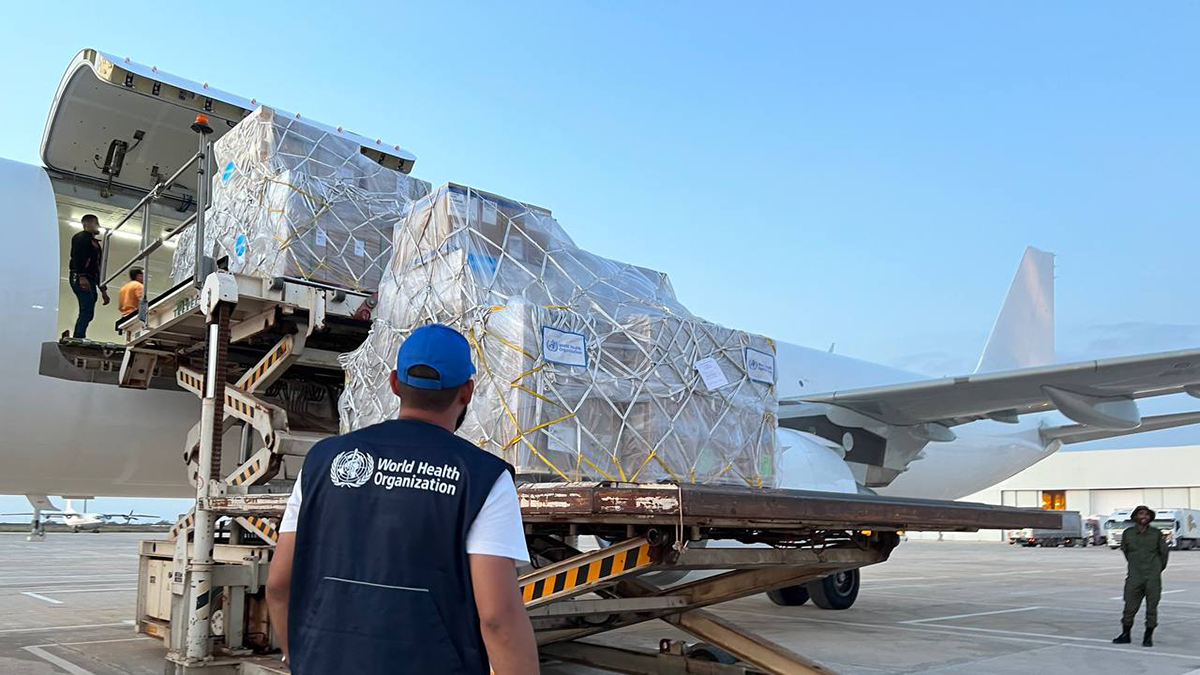
A 29-metric-tonne shipment of health supplies from the WHO Global Logistics Hub in Dubai has arrived in Benghazi, Libya. Credit: WHO
If a country needs reinforcements of health workers, WHO mobilizes a worldwide network of emergency medical teams supported by the governments of member states.
As in many emergencies, people in Libya will need humanitarian assistance for many weeks and months after this disaster recedes from the public view.
Once the immediate danger passes, flooding continues to pose a major health hazard. It increases the risk of diseases such as cholera and malaria, damages sanitation systems and disrupts the delivery of health services. In agricultural areas, flooding can wash away entire harvests, leading to a rise in malnutrition. Following floods in Pakistan in 2022, around 8 million people needed health assistance, including essential medical supplies and access to essential health care.
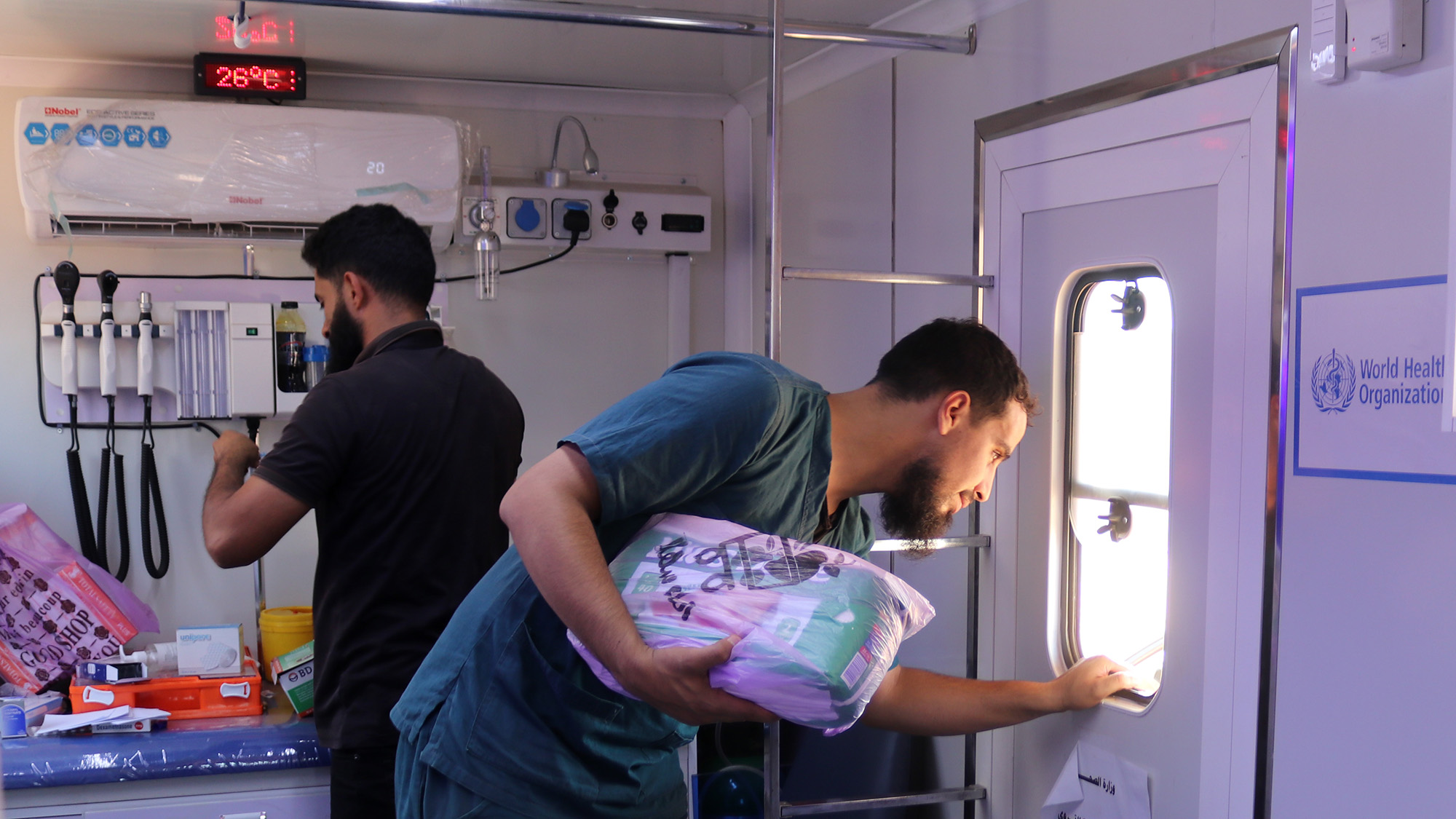
An inside view of a WHO mobile health clinic, deployed to deliver essential care to communities devastated by catastrophic flooding in Derna. Credit: WHO
Climate crisis intensifying health emergencies
The 6th IPCC Assessment report made it clear that warmer weather will intensify flooding. It is just one aspect of the multiple ways in which the climate crisis contributes to an increase in the number of health emergencies worldwide.
In the case of Libya, it is believed that higher than average sea temperatures fuelled the winds that carried the storm to the coastal cities, which were unprepared to withstand the flooding. People living in countries classed as “highly vulnerable” by the IPCC are up to 15 times more likely to die in the event of an emergency.
Stable funding is needed to prevent, and prepare for these emergencies as well as to resource emergency health teams and dispatch supplies through what is often challenging terrain. This is where the contributions of the WHO Foundation’s Health Emergencies Alliance play a valuable role. This community of philanthropic-minded businesses helps to resource emergency preparedness and response through regular funding and emergency donations.
At this week’s UN General Assembly, WHO is charting progress towards achieving SDG 3.8, which is the bedrock of any effort to improve health worldwide, made even more urgent by the need to mitigate the health threats of climate change.
The WHO Foundation, together with its network of funding partners and advocates, is committed to mobilizing collective resources to reinforce WHO’s efforts to strengthen the health care response in the face of this rapidly unfolding climate crisis.
